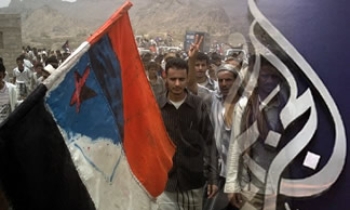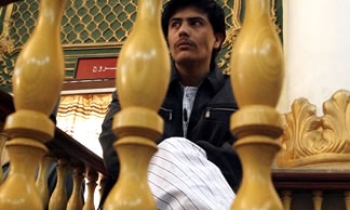Iraq is the deadliest war on record for news people.
The Committee to Protect Journalists reports that 74 journalists have been killed there since the bombing of Baghdad began in 2003. And there have been plenty of near-misses.
NBC's David Bloom died of a pulmonary embolism in the early weeks of the war while riding in a tank. ABC's Bob Woodruff was seriously injured last January, and CBS's Kimberly Dozier is recovering from an attack in late May that left two of her CBS crew dead.
By comparison, the total number of press casualties for the Vietnam War, spanning two decades, was 66. World War II lost 68 reporters on the battlefield.
"There are more news people in place, it's a more dangerous conflict, so more people are in harm's way now," says Chris Cramer, managing director of CNN International. "It's a very challenging crisis to cover."
The ongoing insurgency in Iraq has proved more deadly than the original war, and the designation "war correspondent," which is sometimes seen as the pinnacle of journalism, now carries with it a good deal of danger.
None of the TV networks sends reporters into Iraq who don't want to go. The assignment is strictly voluntary. And not all who volunteer are cleared to go.
"It's complicated," says Paul Slavin, senior vice president of worldwide news gathering for ABC. "There are still a lot of people who want to go, but because it is so deadly and difficult, we won't allow them. Vietnam was a plum assignment. There were people who went over there, learned their craft, got great stories, and it was good for their careers. There are plenty of people here who would love to make their mark in Iraq but do not have sufficient experience."
ABC's Jake Tapper has been to Iraq several times but, according to Slavin, might think seriously about going again. John Berman has had nine stints in Iraq and may be thinking enough is enough, too. Martha Raddatz has been several times, and Miguel Marquez is over there now for ABC News.
CBS' Lara Logan has spent nearly two years covering the war in Iraq, and CNN's Nic Robertson has been embedded so many times he's practically a United States Army grunt.
All volunteer war correspondents go through mandatory "hostile environment training." And most news organizations follow up with post-war counseling.
"We go through a vetting process with first-timers," says David Verdi, NBC's vice president of news coverage. "If we sense even a little bit that someone is going because they think it'll help their career — or for the adventure — we won't let them go."
The size of the networks' teams in Iraq varies, depending on what's happening. But in general, there are fewer reporters there now than during the earlier days of the war. And "embeds" (reporters traveling within military combat units) are relatively rare.
"We had lots of people embedded in the beginning, but they're not giving us that much editorially now," Slavin says. "It's like looking at the story through a straw. And they're quite dangerous."
Security is foremost on everybody's mind, especially since Woodruff's near-fatal injuries. Most news organizations have daily security briefings with their own staffs and weekly meetings with other news groups in the region.
NBC set up its Baghdad bureau outside the heavily fortified (and allegedly safe) "green zone." To be able to come and go as they please, however, NBC had to fortify an entire block around their hotel.
"We spend a tremendous time dealing with security issues," Verdi says. "We have come under attack and lost a freelance audio man on patrol with Marines. Our hotels have been attacked twice, we've had two separate kidnappings and we were yards away from a very large roadside bomb. We've run the gamut of types of dangers there, and violence has escalated as the story has evolved. We've been as vigilant as we possibly can be."
Reporters rarely go out on speculative stories in Iraq anymore, and every move has to be cleared through the top levels of management.
"Every time we decide to leave the bureau, the risks have to be weighed," Cramer says. "Coverage in Iraq is challenging and frustrating. Nobody's getting a full picture, but our judgment is it's better to be there than not be there."
CNN had a bureau in Baghdad long before the current war and has a staff of 45 to 50 there now — down slightly from 2003. Two local staffers were killed in '04.
Although there have been more deaths among print reporters than TV reporters in Iraq since 2003, broadcast journalists feel their risks are greater. Dozier and Woodruff were both injured while reporting from the field with camera and sound techs traveling with them.
"Print reporters can more easily blend in," Slavin says. "TV demands outdoor static behavior."
Although there are slightly fewer TV reporters covering the insurgency than a couple of years ago, nobody is talking about pulling up stakes and leaving — at least not yet.
"This is one of the most important stories in the world today," Slavin says. "It'll take a lot to get us to back off our commitment to cover the war. But that does not mean there might not come a time when it's just too dangerous."









